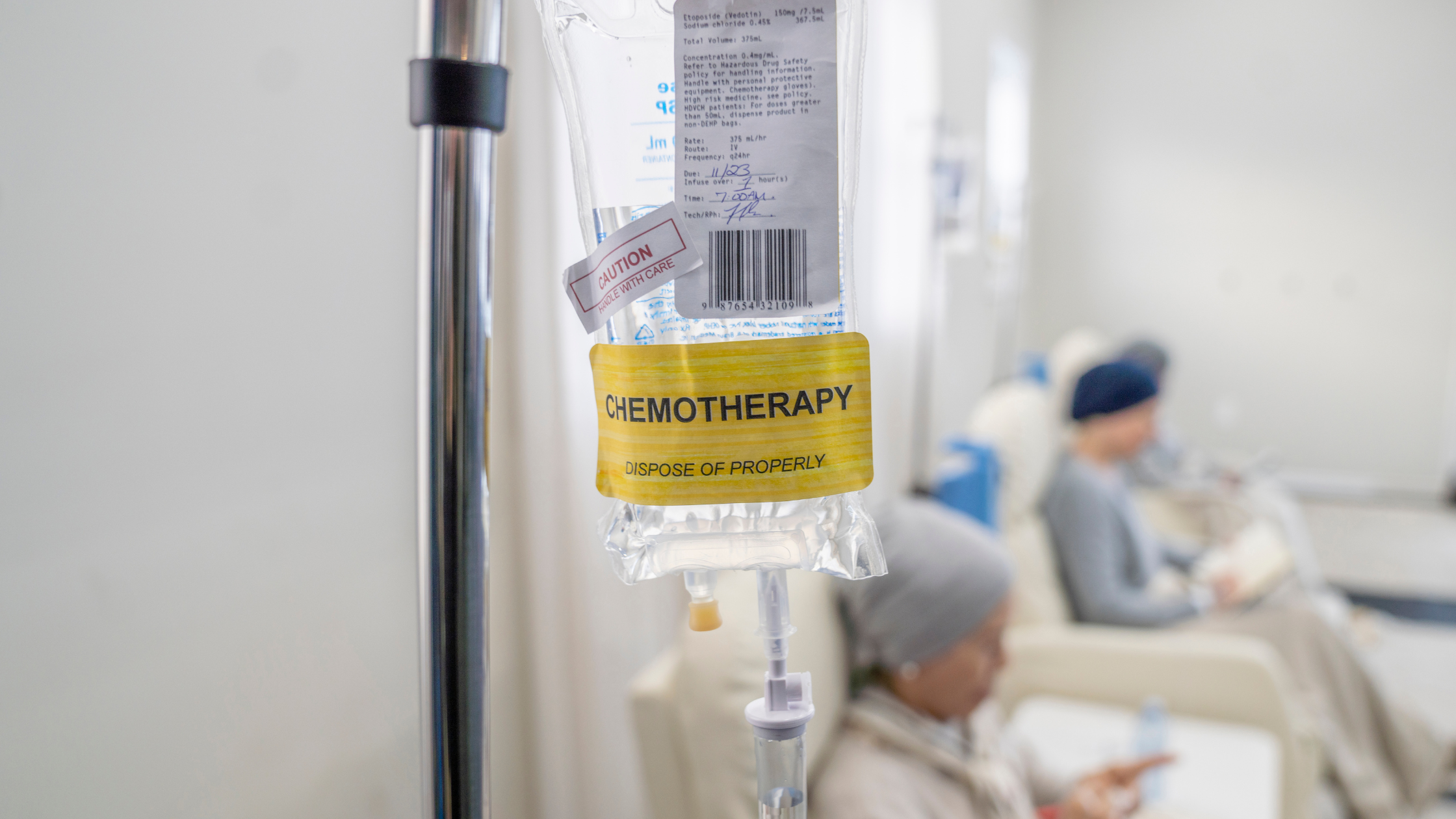How Successful Are Alternative Cancer Treatments? 7 Options Worth Considering
Written by TYE Medical on Aug 4th 2023
You’ll find no shortage of testimonies about how alternative cancer treatments have successfully defeated all levels of cancer. And while you can’t deny legitimate experience, if you or a loved one are fighting cancer, you probably want to rely on more than a personal story.
So, what about science? Have studies shown alternative medicine alone to eradicate cancer? No, they haven’t. Rather, they have found an increase in the death rate of cancer patients treated solely through alternative means. A study published in The Journal of the National Cancer Institute found that people were at least twice as likely to die from receiving alternative treatments alone, and the likelihood of death increased to 4.5 times when treating colorectal cancer.
But there is a purpose for alternative medicine in cancer treatment care plans. While unconventional approaches may not cure your cancer on their own, they have been successful in alleviating symptoms triggered by chemotherapy and other traditional treatments. And this alone can bolster your wellbeing and give you the strength to keep fighting your battle with cancer.
Here are 7 effective alternative cancer treatment options to aid you in your fight.
What Is Alternative Medicine?

Let’s first clarify what alternative medicine is. It’s any method of treatment that isn’t traditionally prescribed by health care providers. All forms of chemotherapy, surgery, and radiation are traditional forms of cancer treatment. We would call this “conventional medicine”. Anything prescribed outside of these pounds is considered “unconventional” and “alternative”.
For many years, the medical community largely dismissed alternative medicine and integrated approaches to patient care. But more recently, health care professionals have come to recognize validity in some approaches, especially when used alongside or as a complementary treatment to traditional medicine. This combined approach has become known as “integrated medicine” and is practiced by many health care providers.
How Alternative Medicine Can Help You Fight Cancer

Even when used as a complimentary part of your general cancer treatment plan, not all alternative medicine methods and practices are advisable. Some can even be dangerous. It’s important to know what approaches are safe as you search for what is most beneficial for your symptoms.
However, some alternative cancer treatments can help mitigate signs and symptoms brought on by traditional treatments like chemotherapy. But keep in mind that research hasn’t shown them to play a direct role in curing cancer.
Signs and symptoms that may improve with alternative cancer treatments are:
- Fatigue
- Anxiety
- Nausea
- Pain
- Vomiting
- Stress
- Difficulty sleeping
These symptoms can be very intense. In combination, they can wear down your physical strength and mental resolve. Both are essential to the endurance required for fighting the battle with cancer. Finding the right alternative treatment options for your specific systems can offer relief and provide strength for the ongoing fight.
Overview of Alternative Cancer Treatments

Here are safe and effective alternative medicine approaches that you can use alongside conventional cancer treatments to help alleviate side effects and symptoms:
| Symptoms: | Consider trying: |
| Anxiety | Cognitive behavioral therapy, hypnosis, massage, meditation, music therapy, relaxation techniques |
| Fatigue | Exercise, massage, relaxation techniques, yoga |
| Nausea and vomiting | Acupuncture, aromatherapy, hypnosis, music therapy |
| Pain | Acupuncture, aromatherapy, hypnosis, massage, music therapy |
| Sleep problems | Cognitive behavioral therapy, exercise, relaxation techniques, yoga |
| Stress | Aromatherapy, exercise, hypnosis, massage, meditation, music therapy, tai chi, yoga |
Mayo Clinic
7 Alternative Cancer Treatment Options Worth Trying
1. Acupuncture

This approach is generally used to alleviate nausea and pain in cancer patients, two very common and troublesome side effects of chemotherapy. A practitioner strategically inserts tiny needles into your skin. A modern understanding of this ancient Chinese practice involves the nervous system. The simple explanation is that acupunctions target nerve pathways and are essentially manipulating your nervous system and how it signals pain. The feeling of nausea is much like a pain sensation which makes acupuncture effective for some people.
Acupuncture is a safe treatment method if performed by a licensed practitioner who uses sterile needles. However, it’s not recommended if you’re taking blood thinners or have low blood counts. It’s always best to check with your oncologist or primary care provider before beginning an acupuncture treatment.
2. Aromatherapy
You may find this a more effective method for treating nausea, pain, and even stress. Fragrant oils are known to calm and relax your body. Lavender scent can be especially helpful in combating these symptoms.
Common methods include heating the oils to release the scent into the air. You can use a home oil diffuser for this purpose. Another aromatherapy option is to have the oil rubbed into your skin during a massage. Adding the oils to bath water can also be a relaxing way to receive their benefits.
If you prefer not to self-treat with aromatherapy, you can find a practitioner to guide you through treatments. Aromatherapy is considered a very safe method for combating cancer symptoms and treatment side effects. But allergic reactions to the oil are possible since the oils are applied to your skin.
3. Cognitive Behavioral Therapy

Also known as CBT, it is a type of talk therapy led by a mental health counselor such as a therapist or psychotherapist. It’s a way to help you work through challenging situations, such as a cancer diagnosis and the difficulties of treatment. Cognitive behavioral therapy helps you think through your situation with great clarity and guides you in how to respond most effectively.
CBT helps cancer patients minimize sleep disturbances and can even help with anxiety and depression related to your situation. You might have thoughts that interrupt your sleep or daily life. A CBT therapist can help you replace disturbing thoughts with thoughts and behaviors that promote peace of mind and better sleep.
4. Exercise
According to the National Cancer Institute, exercise improves survival rates for cancer patients, and it should be prescribed along with other recommended treatments, especially for breast, colon, and prostate cancer diagnoses. And it also helps manage those cancer treatment side effects and symptoms.
But it’s recommended that you engage in gentle rather than intense exercise. You want to gain an energy boost and combat fatigue, which means gentle exercise is preferable over anything strenuous. It isn’t a time to push yourself or strive for lofty goals. If done appropriately, exercise can help reduce stress and fatigue while also helping you sleep better.
A number of studies indicate that exercise helps cancer patients live longer and with an improved quality of life. An effective exercise program will be at least 30 minutes at least 5-6 days per week. But you can start with smaller increments of time and work your way up to 30 minutes.
5. Yoga

Yoga can help you improve sleep while reducing the fatigue and stress associated with traditional cancer treatments. It combines stretching exercises with deep breathing. While some forms of yoga challenge muscle strength and promote toning, yoga during cancer treatments should focus on stretching rather than strengthening.
You don’t want your yoga routine to tire you, tax your muscles, or make you sore. Look for “gentle yoga” or “restorative” routines that will focus on stretching and breathing. Your doctor may be able to recommend a yoga instructor who works with cancer patients and others with health conditions. Just remember to avoid any yoga poses that cause you pain. Your instructor should be able to offer alternative poses for those that are too uncomfortable.
6. Massage Therapy
A professional massage offers a number of benefits, helping to relieve symptoms of pain, anxiety, fatigue, and stress. A professional massage involves a massage therapist who needs the muscles beneath your skin in specific ways that relieve tension and promote physical and mental relaxation.
Massage therapists use different methods with pressure that varies from light and gentle to deep and intense. You can experiment to see what type of pressure works best to relieve your symptoms. Massage is generally safe but it’s best to work with a professional massage therapist who has experience working with people who have cancer.
Massages aren’t recommended if you have very low blood counts. Ask your massage therapist not to work near radiation treatment areas, tumors, or surgical scars. You should also request light pressure massages if you have bone cancer or other bone diseases.
7. Music Therapy

Music therapy can help you ease pain, nausea, and vomiting due to cancer treatments. You might find it also helps reduce anxiety and stress. It’s another way to focus your mind and relax your body, which helps you keep you physically and mentally strong. What happens during a musical therapy session? A trained music therapist leads you through a program designed to meet your personalized needs. You can also choose a group music therapy session. During a session, you might listen to music, sing songs, play instruments, or even write lyrics.
Music therapy is safe, and it’s not just for people with musical talents. Its primary goal is therapeutic. It’s not uncommon for medical centers to have certified musical therapists on staff.
Alternative Cancer Treatment Recap
It’s true that research doesn’t support alternative cancer treatments as a cure, but offer effective methods for reducing the symptoms of traditional cancer treatments. While this might not seem so valuable, alternative methods do more than just make you more comfortable. Reduced pain, better sleep, increased energy, greater peace of mind, and other benefits greatly improve your overall wellbeing and help you fight against cancer.
It’s worth finding one or several alternative cancer treatments that bring relief and increase your strength. Be sure to consult with your doctor if you have other health conditions.


